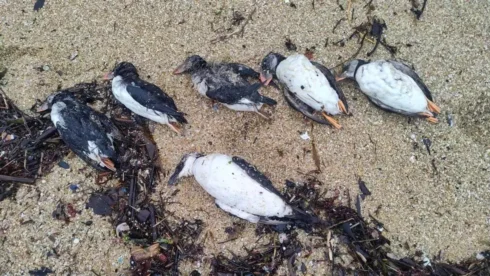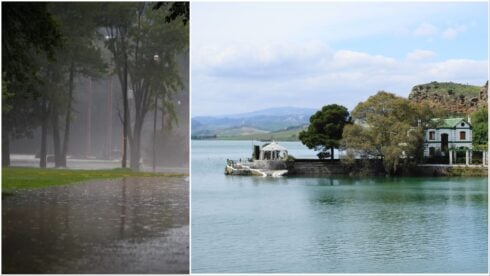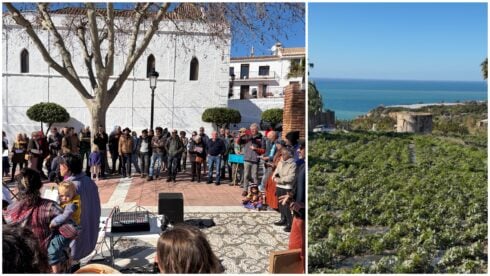IT will go down as the hottest decade on record.
With temperatures soaring, both on land and sea, global warming has become a major issue for the world.
With temperatures about 1.1C above the average from 2010 to 2019, desertification has been spreading, in particular, through southern Spain.
The provinces of Granada, Malaga and Almeria are in serious risk, while Murcia and large parts of Valencia are also at risk of semi-desert conditions.

The ‘exceptional’ heat around the world was announced by the World Meteorological Organization (WMO), as climate activist Greta Thunberg (pictured) arrived in Portugal by boat en route for a key climate summit in Madrid this week.
She is set to stay in the capital for two weeks, taking part in a huge demonstration this Friday.
Temperature rises are close to the 1.5C warming that scientists insist will cause extreme weather and the loss of vital ecosystems in many places.
Other impacts include severe droughts, heatwaves and floods across all continents, and over the seas there have also been heatwaves.
The findings by the WMO show that this year will be the second or third warmest since records began.
The Arctic sea ice minimum in September was the third smallest on record.
Click here to read more Environment News from The Olive Press.









Spain has only 4751 MW of Solar, which has barely increased in the last six years.
Meanwhile Germany has 45,277, even Italy has 20,107 MW
When it comes to wind, Spain has 23 GW of installed capacity, but its investment has tailed off, adding only 3.7GW in the last three years. By comparison, Germany has added 16.5 GW in the last three years.
On the plus side, it looks like Spain won’t be burning any more coal in its power stations next year, as coal is no longer economic. If you can believe the power utilities
On the CO2 emissions front, the amount Spain produced in 2017 was 302 million metric tons, about the same as 2000. However it is trending upwards Hardly surprising given that the only renewables being introduced are in Press releases from the likes of fossil fuel companies Iberdrola and Endesa. Iberdrola is responsible alone for 24 million metric tons (2018).
In 2018, 6000 new electric cars were purchased in Spain, In France 32,203. Not surprising given the non installation of EV charging points by companies such as Iberdrola which promised to install 200 in Spain by the end of 2019. These installations exist only on paper. Also you can only get a subsidy from the Spanish government toward the cost of buying a new electric car if you have a 10 year old ICE one to scrap. In France you get 6000€.
So Spain has a lot to do to tackle climate change proceeding.
When it comes to adapting to climate change, the government and people firstly need to accept that it is happening and causing desertification, drought, forest fires, etc.. Also that the farming map will have to move North, and new crops come into the South. Oranges in Santander, Pineapples in Padul, Bananas form Baena and yes Avocados from Andalucia.
More desalination plants powered by renewable energy.
Adapting for tourists not wanting to visit in the very hot weather, but shifting to other places and other times.
Persuading visitors to travel by train and electric vehicles.
Changing the working day and school day to adapt to the new conditions.
Charge more for water – same price per tonne for all – farmers, business and domestic users. Domestic users to be given a free ration of say 150 tonnes per person.